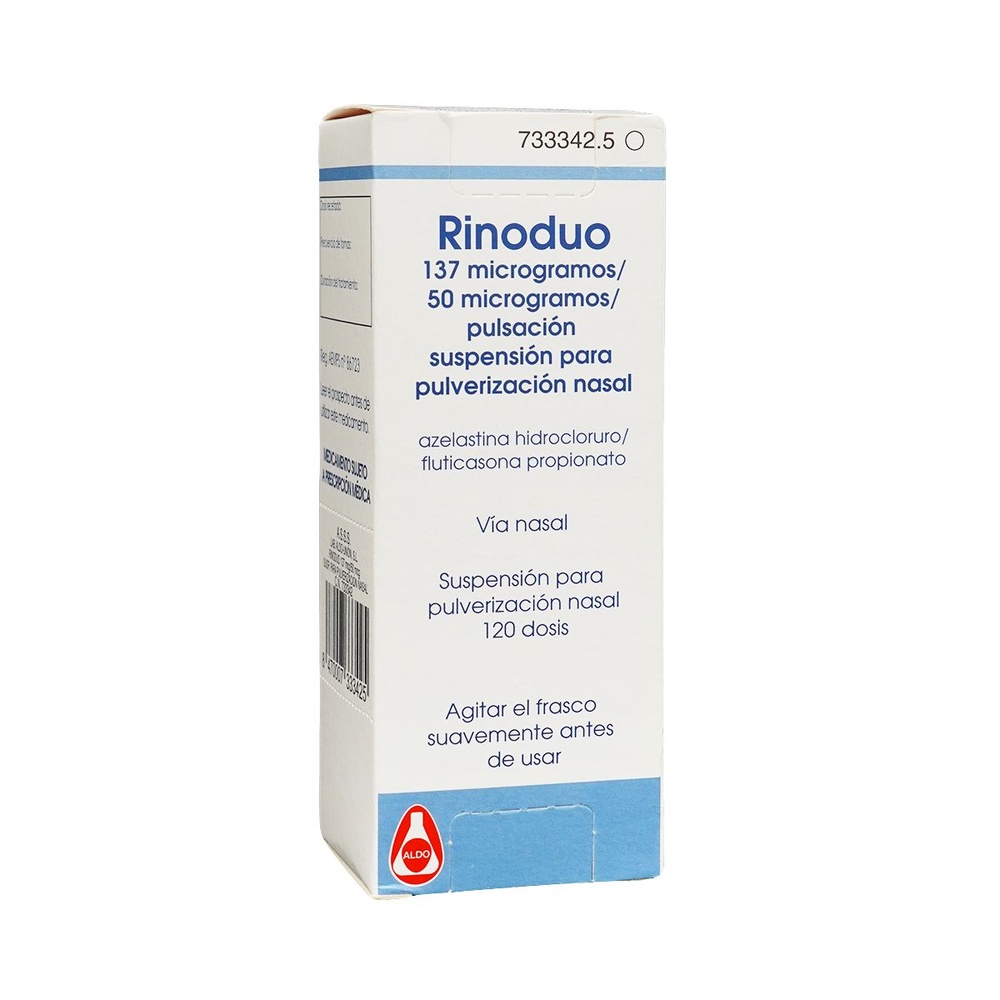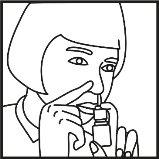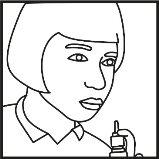
RINODUO 137 micrograms/50 micrograms/puff NASAL SPRAY SUSPENSION


How to use RINODUO 137 micrograms/50 micrograms/puff NASAL SPRAY SUSPENSION
Translated with AI
This page provides general information and does not replace a doctor’s consultation. Always consult a doctor before taking any medication. Seek urgent medical care if symptoms are severe.
Show originalContents of the leaflet
Introduction
Package Leaflet: Information for the Patient
Rinoduo 137 micrograms/50 micrograms per actuation nasal spray suspension
azelastine hydrochloride/fluticasone propionate
Read all of this leaflet carefully before you start using this medicine because it contains important information for you.
- Keep this leaflet, you may need to read it again.
- If you have any further questions, ask your doctor or pharmacist.
- This medicine has been prescribed for you only. Do not pass it on to others. It may harm them, even if their signs of illness are the same as yours.
- If you get any side effects, talk to your doctor or pharmacist. This includes any possible side effects not listed in this leaflet. See section 4.
Contents of the pack
- What Rinoduo is and what it is used for
- What you need to know before you use Rinoduo
- How to use Rinoduo
- Possible side effects
- Storage of Rinoduo
- Contents of the pack and other information
1. What Rinoduo is and what it is used for
Rinoduo contains two active substances: azelastine hydrochloride and fluticasone propionate.
- Azelastine hydrochloride belongs to a group of medicines called antihistamines. Antihistamines work by preventing the effects of substances such as histamine, which is produced by the body as part of an allergic reaction; in this way, it reduces the symptoms of allergic rhinitis.
- Fluticasone propionate belongs to a group of medicines called corticosteroids, which reduce inflammation.
This medicine is used to relieve the symptoms of moderate to severe seasonal and perennial allergic rhinitis, if treatment with an antihistamine or intranasal corticosteroid alone is considered insufficient.
Seasonal or perennial allergic rhinitis are allergic reactions to substances such as pollen (hay fever), house dust mites, molds, dust, or domestic animals.
This medicine relieves the symptoms of allergies, such as: runny nose, postnasal drip, sneezing, itching, or nasal congestion.
2. What you need to know before you use Rinoduo
Do not use Rinoduo
- if you are allergic to azelastine hydrochloride or fluticasone propionate or any of the other ingredients of this medicine (listed in section 6).
Warnings and precautions
Consult your doctor or pharmacist before starting to use this medicine if:
- You have recently had nasal surgery.
- You have a nasal infection. Nasal infections should be treated with antibiotics or antifungals. If you have been given medication for a nasal infection, you can continue using this medicine to treat your allergy.
- You have tuberculosis or an untreated infection.
- You have changes in vision or a history of increased intraocular pressure, glaucoma, and/or cataracts. If you have any of these diseases, you will be closely monitored during the use of this medicine.
- You have impaired adrenal function. Caution should be exercised when switching from systemic corticosteroid treatment to this medicine.
- You have severe liver disease. The risk of systemic side effects will increase.
In these cases, your doctor will decide if you can use this medicine.
It is important that you take the dose indicated in section 3 or the dose indicated by your doctor. Treatment with higher doses of nasal corticosteroids than recommended may lead to adrenal suppression, which can cause weight loss, fatigue, muscle weakness, low blood sugar levels, salt cravings, joint pain, depression, and skin darkening. If you experience any of these side effects, your doctor may recommend another medicine during periods of stress or elective surgery.
To avoid adrenal suppression, your doctor will advise you to take the lowest dose that maintains effective control of your rhinitis symptoms.
The use of nasal corticosteroids (such as this medicine) may cause slower growth in children and adolescents when used for a long period. The doctor will regularly check the growth of children and ensure that they take the lowest effective dose possible.
Contact your doctor if you experience blurred vision or other visual disturbances.
If you are not sure if you are in any of the above situations, consult your doctor or pharmacist before using this medicine.
Children
This medicine is not recommended for use in children under 12 years of age.
Using Rinoduo with other medicines
Tell your doctor or pharmacist if you are taking, have recently taken, or might take any other medicines, including those obtained without a prescription.
Some medicines may increase the effects of this medicine, so your doctor will monitor you closely if you are taking these medicines (including some for HIV: ritonavir, cobicistat, and medicines for the treatment of fungal infections: ketoconazole).
Pregnancy and breastfeeding
If you are pregnant or breastfeeding, think you may be pregnant, or are planning to have a baby, ask your doctor or pharmacist for advice before using this medicine.
Driving and using machines
This medicine has a minimal influence on the ability to drive and use machines.
Very rarely, you may experience fatigue or dizziness due to the disease itself or during the use of this medicine. In these cases, do not drive or operate machinery. Note that alcohol consumption can enhance these effects.
Rinoduo contains benzalkonium chloride
This medicine may cause inflammation of the nasal mucosa, especially with long-term treatments, because it contains benzalkonium chloride.
If such a reaction is suspected (persistent nasal congestion), whenever possible, a nasal medicine that does not contain this excipient should be used.
3. How to use Rinoduo
Follow exactly the administration instructions of this medicine indicated by your doctor. In case of doubt, consult your doctor or pharmacist again.
It is essential that the use of this medicine is regular for the therapeutic benefit to be complete.
Avoid contact with the eyes.
Adults and adolescents (over 12 years)
- The recommended dose is one actuation in each nostril, in the morning and in the evening.
Use in children under 12 years
- This medicine is not recommended for use in children under 12 years of age.
Use in case of renal and hepatic insufficiency
There are no data available in patients with renal and hepatic insufficiency.
Method of administration
Nasal use.
Read the following instructions carefully and use the product only as indicated.
INSTRUCTIONS FOR USE
Preparation of the spray
- Gently shake the bottle for 5 seconds, tilting it from top to bottom, and then remove the protective cap (see figure 1).
Figure 1

- The first time you use the nasal spray, you need to activate the pump by spraying into the air.
- Activate the pump by placing two fingers on either side of the spray pump and putting your thumb on the base of the bottle.
- Pump and release the pump 6 times, until a fine spray appears (see figure 2).
Figure 2

- Now, the pump is activated and ready to use. 6. If you have not used the nasal spray for more than 7 days, you will need to reactivate the pump by pressing and releasing it.
Spraying method
- Gently shake the bottle for 5 seconds, tilting it from top to bottom, and then remove the protective cap (see figure 1).
- Blow your nose to clear your nostrils.
- Keep your head tilted forward. Do not tilt your head back.
- Keep the bottle upright and carefully insert the tip of the spray into one nostril.
- Close the other nostril with your finger, pump quickly once, and at the same time, make a gentle inhalation (see figure 3).
- Breathe through your mouth.
Figure 3

- Repeat the operation in the other nostril.
- Breathe gently and do not tilt your head back after spraying. This prevents the medicine from reaching your throat, causing an unpleasant taste (see figure 4).
Figure 4

- After each use, clean the tip of the spray with a tissue or a clean cloth, and replace the protective cap.
- Do not pinch the nozzle if you do not get the spray. Clean the valve with water.
It is important that you use the prescribed dose. Use only the amount that your doctor has recommended.
Duration of treatment
This medicine is suitable for prolonged use. The duration of treatment corresponds to the period during which you experience allergic symptoms.
If you use more Rinoduo than you should
If you apply more of this medicine to your nose than you should, it is unlikely that you will have any problems. In case of doubt, or if you have used a higher dose than recommended for a long time, consult your doctor. If a person, especially a child, accidentally drinks this medicine, consult your doctor immediately or go to the nearest medical center, or call the Toxicology Information Service. Phone (91) 562 04 20, indicating the medicine and the amount ingested.
If you forget to use Rinoduo
Use the nasal spray as soon as you remember and then administer the next dose at the usual time. Do not use a double dose to make up for forgotten doses.
If you stop using Rinoduo
Do not stop treatment without consulting your doctor, as this may put the success of your treatment at risk.
If you have any further questions about the use of this medicine, ask your doctor or pharmacist.
4. Possible side effects
Like all medicines, this medicine can cause side effects, although not everybody gets them.
Very common side effects (may affect more than 1 in 10 people):
- Nasal bleeding.
Common side effects (may affect up to 1 in 10 people):
- Headache.
- Bitter taste in the mouth, especially if you tilt your head back during the use of the nasal spray. This taste should disappear if you drink a soft drink a few minutes after using this medicine.
- Unpleasant smell.
Uncommon side effects (may affect up to 1 in 100 people):
- Mild irritation of the inside of the nose, which can cause mild itching, itching, or sneezing.
- Nasal dryness, cough, throat dryness, or throat irritation.
Rare side effects (may affect up to 1 in 1,000 people):
- Dry mouth.
Very rare side effects (may affect up to 1 in 10,000 people):
- Dizziness or drowsiness.
- Cataracts, glaucoma, or increased pressure in the eye, with possible loss of vision and/or redness and eye pain. These side effects have been observed with prolonged treatment with fluticasone propionate nasal sprays.
- Lesions of the skin and mucous membranes of the nose.
- Feeling of discomfort, fatigue, exhaustion, or weakness.
- Rash, redness, or itching of the skin, hives.
- Bronchospasm (narrowing of the airways in the lungs).
Seek immediate medical attention if you develop any of the following symptoms:
- Swelling of the face, lips, tongue, or throat, which may cause difficulty swallowing/breathing, and sudden appearance of rash on the skin. These could be signs of a severe allergic reaction. Note that this is very rare.
Side effects with unknown frequency (frequency cannot be estimated from the available data)
- Blurred vision
- Ulcers in the nose
When this medicine is administered at high doses for a prolonged period, systemic side effects (side effects that affect the whole body) may occur. The likelihood of these effects is much lower if a nasal corticosteroid spray is used instead of oral corticosteroids. These effects can vary between individual patients and between different corticosteroid preparations (see section 2).
Corticosteroid nasal sprays may affect the normal production of hormones in your body, especially if high doses are used for a long time. In children and adolescents, this side effect can cause slower growth.
In rare cases, a reduction in bone density (osteoporosis) occurs when corticosteroids are administered nasally for a long period.
Reporting of side effects
If you experience any side effects, talk to your doctor or pharmacist. This includes any possible side effects not listed in this leaflet. You can also report side effects directly through the Spanish Pharmacovigilance System for Human Use Medicines: https://www.notificaram.es. By reporting side effects, you can help provide more information on the safety of this medicine.
5. Storage of Rinoduo
Keep this medicine out of the sight and reach of children.
Do not use this medicine after the expiry date which is stated on the bottle and carton after “EXP”. The expiry date is the last day of the month stated.
This product does not require any special storage conditions. Do not refrigerate or freeze.
Shelf life after opening: Discard any unused medicine 6 months after opening the nasal spray for the first time.
Medicines should not be disposed of via wastewater or household waste. Ask your pharmacist how to dispose of medicines no longer required. These measures will help protect the environment.
6. Contents of the pack and other information
Composition of Rinoduo
- The active substances are azelastine hydrochloride and fluticasone propionate. Each actuation (0.137 g) delivers 137 micrograms of azelastine hydrochloride (= 125 micrograms of azelastine) and 50 micrograms of fluticasone propionate.
- The other ingredients are benzalkonium chloride, phenylethyl alcohol, glycerol, disodium edetate, polysorbate 80, microcrystalline cellulose, and sodium carmellose, and purified water.
Appearance and packaging of the product
Rinoduo is a homogeneous white suspension.
Rinoduo is presented in a 25 ml amber glass bottle, equipped with a spray pump, an applicator, and a protective cap.
The 25 ml bottle contains 23 g of the nasal spray suspension (at least 120 actuations).
Marketing authorisation holder and manufacturer
Laboratorio Aldo-Unión, S.L.
Baronesa de Maldá, 73
08950 Esplugues de Llobregat
Barcelona – Spain
Date of last revision of this leaflet: March 2022
Detailed information on this medicine is available on the website of the Spanish Agency for Medicines and Health Products (AEMPS) (http://www.aemps.gob.es/).
- Country of registration
- Average pharmacy price13.64 EUR
- Active substance
- Prescription requiredYes
- Manufacturer
- This information is for reference only and does not constitute medical advice. Always consult a doctor before taking any medication. Oladoctor is not responsible for medical decisions based on this content.
- Alternatives to RINODUO 137 micrograms/50 micrograms/puff NASAL SPRAY SUSPENSIONDosage form: NASAL PRODUCT, 137 micrograms/50 micrograms/applicationActive substance: fluticasone, combinationsManufacturer: Laboratorios Cinfa S.A.Prescription requiredDosage form: NASAL PRODUCT, 137 micrograms/50 micrograms/actuationActive substance: fluticasone, combinationsManufacturer: Teva B.V.Prescription requiredDosage form: NASAL PRODUCT, 137 micrograms/50 micrograms/applicationActive substance: fluticasone, combinationsManufacturer: Especialidades Farmaceuticas Centrum S.A.Prescription required
Online doctors for RINODUO 137 micrograms/50 micrograms/puff NASAL SPRAY SUSPENSION
Discuss questions about RINODUO 137 micrograms/50 micrograms/puff NASAL SPRAY SUSPENSION, including use, safety considerations and prescription review, subject to medical assessment and local regulations.
Frequently Asked Questions











